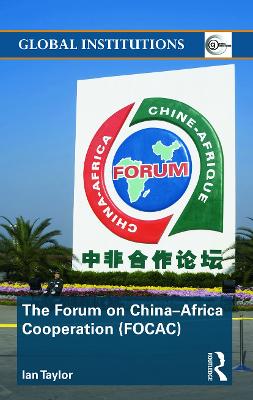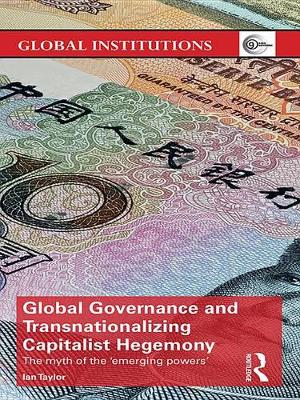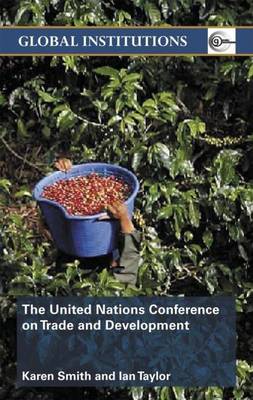Global Institutions
4 total works
The increase in China's economic and political involvement in Africa is arguably the most momentous development on the continent since the end of the Cold War. This book seeks to detail the origins, structure, workings and activities of The Forum on China-Africa Cooperation (FOCAC) and its development over the last nine years.
Mindful of the growing realisation that Africa is to play an increasingly important role in global energy politics, Ian Taylor provides a clear and detailed overview of an organisation that has been generally overlooked, despite the exponential rise in the importance of the Chinese presence in Africa.
Topics addressed include:
- the key structures, functions and operations of the FOCAC
- the importance and development of the triennial summits, including the focus on cultural exchanges and economic cooperation
- the key criticisms and challenges currently faced by the FOCAC
- discussion of 'emerging issues' - is it possible to have a "win-win" situation between Africa and China, as the FOCAC suggests?
The Forum on China-Africa Cooperation provides a concise introduction to an organisation that will be instrumental in the future of Africa's relationship with the developed world, and will be of interest to students of African and Chinese politics, International Relations and International Organizations.
Global Governance and Transnationalizing Capitalist Hegemony
by Ian Taylor
This book is a critique of claims regarding how emerging economies are supposedly rewriting the rules of global governance and ushering in alternative models to neoliberal orthodoxy. It argues that such assumptions are abstractions that ignore both the transnationalizing nature of the global political economy and the actual policy goals of the ruling classes within most emerging economies.
Considering the larger issues behind the emerging economies (or powers) debate, the book deploys an adapted global capitalism perspective with insights from Gramsci, Poulantzas and Cox, to argue that the transnational nature of the global political economy and the actual policy goals of the dominant elites within most emerging economies merge to undermine any transformative element. Far from challenging the global order, these ostensible new rivals in fact seek to integrate their economies more and more within the existing liberal global economy. Inter-state dynamics and even inter-elite tensions exist and it is clear that the nation state has not simply become a transmission belt for global capital, but equally we must move beyond the surface phenomena that are most visible in global tensions to get at the underlying essence of social and class forces in the global political economy. Looking at the largest emerging powers, such as Brazil, Russia, India and China, Taylor explains why the emerging powers' elites, although essentially subscribing to neoliberalism (in all its variegated forms) may confront the core in a myriad of ways, but that these are not challenges to the ongoing world order and, in fact, the so-called emerging powers serve a legitimizing function for the extant global system.
The book will be of great use to graduates and scholars of International Relations, Global/International Political Economy and International Development.
The United Nations Conference on Trade and Development
by Karen Smith and Ian Taylor
United Nations Conference on Trade and Development (Unctad)
by Ian Taylor and Karen Smith
Ian Taylor and Karen Smith present a much-needed and full examination of the United Nations Conference on Trade and Development (UNCTAD), covering its history and current activities. All the key areas are covered by accessibly written chapters, including:
- an overview of UNCTAD: what it is, why it was formed and why it is important
- how the organization operates today: what it does and how it does it
- key criticisms made against the organization: is it relevant in today's world?
- emerging issues within the organization and its future direction.
In the current era of globalization and what appears to be the dominance of neo-liberal economic thought, UNCTAD has sought to make itself germane to ongoing international debates. The implications of this for the organization's key remit, namely making the world a fairer place, are something that this book unpacks.



